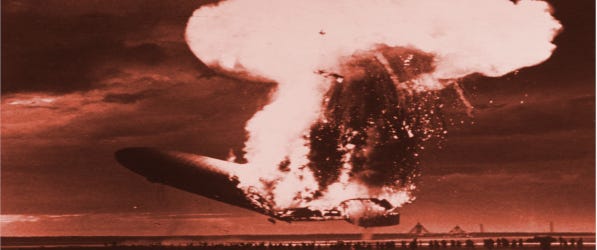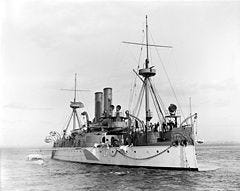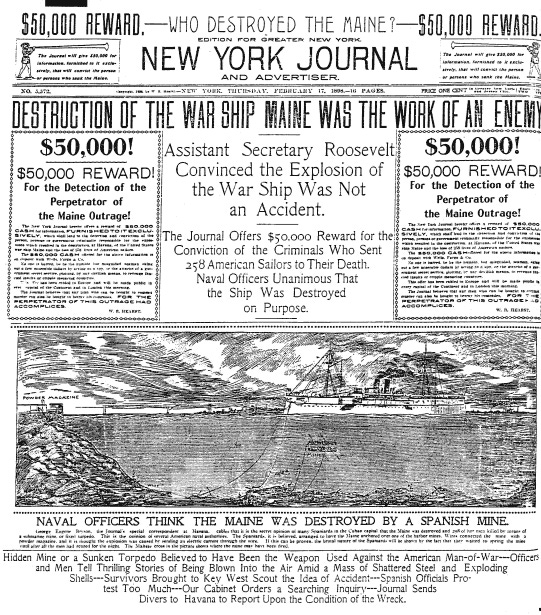
It's hard to be factual in a funny world. It's hard to be funny in a world without facts.
The US Air Force sent a stealth F22 fighter jet to shoot down a Chinese balloon floating with the jet stream across the continent. Uncle Sam posed like a pith helmeted big game hunter with the dead trophy it had bagged.
Was the balloon spying or researching the weather? We probably won't ever know for sure, except that all countries - not excepting, and especially the United States - use, or have used, balloons to surveil adversaries and to observe the weather; and, perhaps, both simultaneously.
On May 1, 1960, readers will remember, the Soviet Union shot down an American high altitude U2 spy plane. America indignantly denied it was spying on the USSR. Then the Kremlin produced the U2's captured pilot, Francis Gary Powers.
Today, the US and China may or may not use high altitude balloons to spy on each other. But like every industrialized state that can, the US certainly uses satellites to spy from the sky. And it also uses electronic eavesdropping. And data harvesting. And old fashioned human surveillance.
Domestically and abroad.
Such is not ever acknowledged and, if it were, it would not be news.
What we do know for sure is that the Western legacy media, as well as a vocal and powerful sector of the political-economic ruling class, will sensationalize the downing of the "Red Chinese Balloon" to excite the general population.
This month, 125 years ago, the USS Maine blew up while at anchor in the harbor of Havana, Cuba.

Cuba was then a Spanish colony.
Exactly what happened on February 15, 1898 when the Maine exploded was not exactly known then or now. Was it a Spanish mine, a torpedo, a boiler accident in the engine room or an ammunition explosion below deck?
The facts don't really matter to those who really matter.
Like the downing of the "Red Chinese Balloon," the sinking of the Battleship Maine instantly became a cause celebre for inciting hysteria, jingoism, racism and fear.
This is an excerpt of what appeared in an editorial by William Randolph Hearst in his newspaper the New York Journal on February 17, 1898:
It was an accident, they say. Perhaps it was, but accident or not, it would never have happened if there had been peace in Cuba, as there would have been if we had done our duty. And it was an accident of a remarkably convenient kind for Spain. Two days ago we had five battleships in the Atlantic. Today we have four. A few more such accidents will leave us at the mercy of a Spanish fleet.
Two years ago our naval superiority over Spain was overwhelming. Two successive administrations have waited patiently for Spain to overcome that disadvantage by buying and building ships enough to bring her navy up to an equality with ours. That process proving too slow, it is now being hastened by the accidental destruction of the American fleet. At this rate it ought not to take long for Spain’s naval strength to surpass our own.
As to the immediate cause of the disaster that has bereaved so many American households and robbed the American navy of one of the most valued elements of its fighting strength, we heed Captain Sigsbee’s appeal to sound judgment. The Government has set an investigation on foot, and the Journal has independently undertaken another. Between them the truth will soon be known. If it be found that the Spanish authorities have fought about this calamity, so profitable to themselves, no power from the White House to Wall Street will be able to restrain the American people from exacting a terrible retribution. And Spain’s innocence must be clearly proven. All the circumstances of the case fix the burden of proof upon her. [* * *]
In such circumstances polite expressions of regret count for nothing. The investigations must clearly disclose Spain’s innocence or her guilt will be assumed.
William Randolph Hearst is the prime example of what is called "yellow journalism."
Read that editorial again and read it aloud. Substitute "China" for "Spain." Or substitute "Russia." You will hear in Hearst's 1898 editorial the same jingoism, the same hysteria, and the same ulterior motives as in today's air-bag reportage. Then, the “news” was printed. Today, it is mostly digital.
The mediums of public manipulation have changed. The methods are old hat.
Cui bono?
The sinking of the USS Maine did not start a war. The narrative of its sinking did.
Then, as now, avaricious, power-seeking folks profit from War. In the main, the people "liberated" from Spain by American conquest did not gain by it, although a certain economic strata, a certain business and latifundium class certainly did. The Spanish-American War, like later western invasions purportedly undertaken to defend the oppressed and downtrodden, was supposed to free the people of Cuba, the Philippines, Puerto Rico and Guam from Spanish colonial rule. The war was marketed that way to a 19th Century American public that was - then as now - at once credulous, prideful and insecure. But no one was made free on the islands conquered by the United States. Only their labor and natural resources were. The effect of the war was simply to transfer dominion from one colonialist to another. The "duty to defend" was a duplicitous doctrine in the 19th Century as it is in the 21st.
The Spanish-American War also propelled a war hawk into the White House, Teddy Roosevelt. The Spanish-American War inspired a period of aggressive, muscular, imperial American foreign policy that continues today. You see it today in Eastern Europe, Asia, Africa and South America.
We still hear William Randolph Hearst's shrill voice. His cant that Spain must be presumed guilty until proven innocent is the cant of today's war cheerleaders against China. It is a parody of the presumption of innocence and it is a perversion of history.
That's the Maine thing about the downing of the Red Chinese Balloon.
* * * * *



